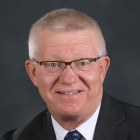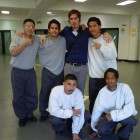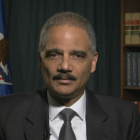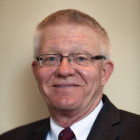
The hardliner prosecutor teaching a law course in a women’s maximum-security prison in Tennessee got to know inmates as real people rather than just paperwork. It changed his life so much he quit his job as a prosecutor, saying he could no longer be complicit in a system that warehoused for decades people who committed crimes as teenagers. The woman who managed an art gallery in a small Pennsylvania town always considered herself a big believer in law and order — and couldn’t imagine befriending a man serving life without parole on a first-degree murder conviction. Then somebody brought some of the inmate’s artwork to her gallery, and she contacted him. Today, she calls him a son, and he calls her “Mom.”
The former Chicago gang member convicted of first-degree murder for his involvement in a fatal stabbing and beating that took place when he was 13 now has a master’s degree, has counseled countless troubled kids and is a youth justice advocate fighting extreme sentencing of juveniles.









